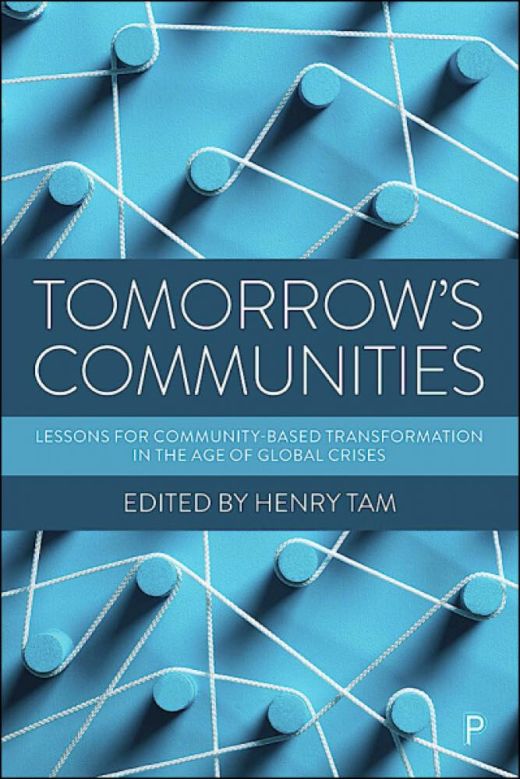Communities must be empowered to act for themselves and in partnership with public services and government.
Author: Henry Tam
Successive crises from the global credit crunch to the coronavirus pandemic have pushed many communities to breaking point. But there are others which have coped much better through being more collaborative and resilient in dealing with the problems they face. What is it that helps communities pull together to respond effectively to social and economic challenges?
In Tomorrow’s Communities: lessons for community-based transformation in the age of global crises, Henry Tam brought together a team of expert analysts and experienced practitioners to identify what factors have over time proven to be most influential in enabling communities to improve their quality of life on a sustainable basis. What they found was, not any single condition, but twelve approaches that can be applied to secure a wide range of improvements. These can be grouped under three broad headings:
1. Community assets - Substantial improvements to economic health and social cohesion can be achieved by asset transfers, backed by the necessary legal and financial framework for community-based organisations to develop their own provisions to meet local needs (e.g., housing, leisure).
2. Local currencies - Alternative mediums of exchange such as local currencies and time banking can promote an ethos of mutual support in otherwise fragmented communities, as well as increase the overall resources that are retained in the local economy.
3. Local understandings - Raising the understanding and influence communities have in shaping the regeneration initiatives that affect them, can help build an informed consensus on what to prioritise and how to maximise the impact of the available resources.
4. Community businesses - The development of businesses that are owned and democratically controlled by local people who work in them can, with the help of cooperative platform technology, increase the quantity and quality of income-earning opportunities.
5. Inclusive dialogue - The distrust and misunderstanding that undermine partnership working between government bodies and community groups can be significantly reduced through the use of inclusive dialogue techniques and shared objective-setting.
6. Uncovering the truth - Community learning, backed by trained facilitators, can help people explore the real causes of the problems they face, contribute to the formulation of viable solutions, and develop confidence in joint action.
7. New structures - Structural changes to engagement practices that empower communities to get involved as equal partners can increase participation levels, and reduce the likelihood of delays and costly mistakes damaging public projects.
8. Adaptive planning - Replacing rigid target-setting and inflexible monitoring by adaptive planning processes and responsive evaluation can help to avoid the wrong goals being pursued, and deliver outcomes that reflect changing needs and circumstances.
9. Prevention - The co-production of public services can be strengthened by incentivising service providers through a form of preventive infrastructure to seek input from communities to improve both the public satisfaction with and financial viability of their services.
10. Cooperation - The adoption of the multi-stakeholder cooperative model can radically transform the health and social care sector to enable the people who provide care and those who need it to work out the optimal service provision.
11. Planning with communities - Tackling food insecurity and related social problems by integrating community interests and contributions into planning and management arrangements can secure more effective outcomes and enhanced dignity for the communities concerned.
12. Shared design - Environmental challenges can be better met when communities are actively involved in awareness raising, option evaluation and selection, and impact monitoring in matters such as neighbourhood designs, energy, transport and air quality.
For detailed analyses and recommendations see, Henry Tam’s Tomorrow’s Communities: lessons for community-based transformation in the age of global crises (Policy Press, 2021).
A short policy briefing document is free to download from:
https://www.transformingsociety.co.uk/2021/07/30/policy-briefing-winning-with-communities/

The publisher is the Centre for Welfare Reform.
Transforming Communities © Henry Tam 2021.
All Rights Reserved. No part of this paper may be reproduced in any form without permission from the publisher except for the quotation of brief passages in reviews.
community, local government, Neighbourhood Democracy, England, Article